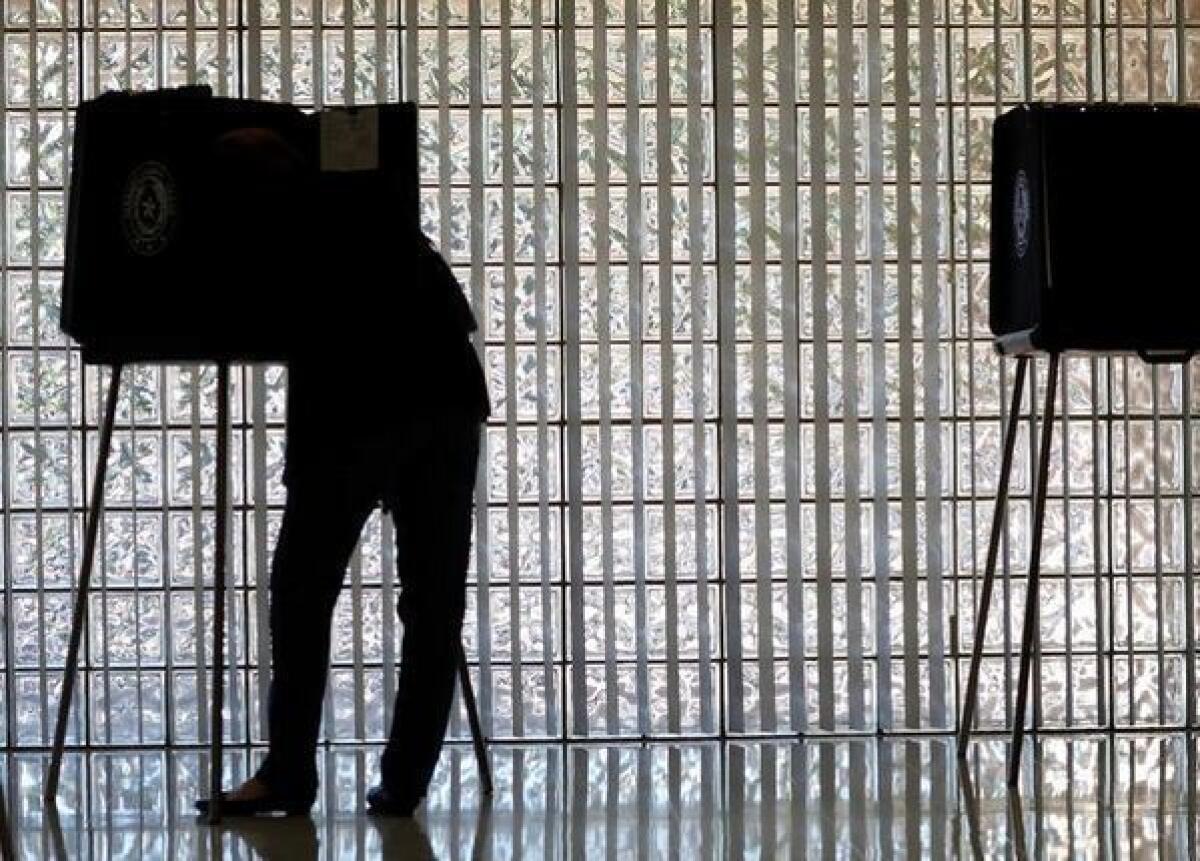Want to vote online? Security expert says keep dreaming

Wish you could vote online? Who doesn’t?
For those of us who do everything from shopping to banking from the comfort of our computers, waiting in long lines to do something as simple as putting a few inky marks on a piece of a paper feels like the equivalent of chiseling your vote in stone.
Hasn’t anyone invented some technology that we can tap or click on without having to leave the house or the office to make this all go faster and more efficiently?
The answer is yes and no. There are several people and companies working on technologies that would allow people to use their computers to vote. And in countries like the U.K., Estonia, Switzerland and Canada, citizens are invited to use the Internet to vote.
But the question is whether these technologies can create secure voting systems that Americans can trust.
Avi Rubin, a professor of computer science at Johns Hopkins University, says they can’t. Period.
“If we could find a pill that will make everyone honest, that will solve Internet voting,” he said in an interview with the Los Angeles Times.
Rubin should know. He’s been working on voting security issues since the late ‘90s. In the early 2000s he got a five-year grant from the National Science Foundation to look at the security of voting and voting issues. And in 2007 he co-authored a report that looked at an online voting system created by the U.S. government to allow members of the military to vote from overseas.
According to Rubin, the fundamental problem with online voting is that our computers are simply too vulnerable to viruses, malware and hackers for us to use them to cast our votes. (For more info on this watch Rubin’s TEDx talk titled “All Your Devices Can Be Hacked.”)
“Maybe if we can solve the desktop security problem and make computers that are not vulnerable to malware we could have online voting, but we need to start with a more secure base,” he said.
Rubin said desktop vulnerability hasn’t stopped him from doing his banking online, or filing his taxes online, but voting is different, because it is anonymous.
A bank account is insured, and if a mistake was made, or a hacker got into your bank account, you would eventually find out. But there is no comparable way to make sure an online vote was cast correctly or at all.
I told Rubin there must be a way. I mumbled something about encryption and side by side hard drives. Couldn’t some one, some day, come up with a super safe and secure system?
Rubin responded by laying out the following scenario: “Lets say that there is online voting, and you go to a website, and they use back up mirror encryption. But what I do, is I send emails out to voters that say, “It’s election day! Click here to vote!” and I send the voters to a fake site. Then, if they are voting how I like, I send them an error message and send them to the real site. Or I just use their voting credentials to vote how I want them to vote.”
Admittedly, that’s a pretty scary scenario. But I still say, never say never.
ALSO:
Facebook, Google and Twitter tackle the election
It’s a bird, it’s a plane, no ... it’s the space station
‘Viraler and viraler’: Fake ad promises to make your video viral
More to Read
Inside the business of entertainment
The Wide Shot brings you news, analysis and insights on everything from streaming wars to production — and what it all means for the future.
You may occasionally receive promotional content from the Los Angeles Times.











